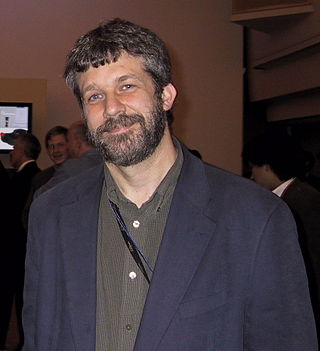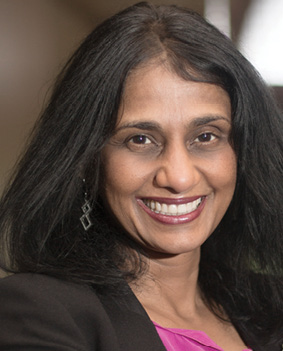Related Research Articles

Cleve Barry Moler is an American mathematician and computer programmer specializing in numerical analysis. In the mid to late 1970s, he was one of the authors of LINPACK and EISPACK, Fortran libraries for numerical computing. He created MATLAB, a numerical computing package, to give his students at the University of New Mexico easy access to these libraries without writing Fortran. In 1984, he co-founded MathWorks with Jack Little to commercialize this program.

David J. Farber is a professor of computer science, noted for his major contributions to programming languages and computer networking who is currently the distinguished professor and co-director of Cyber Civilization Research Center at Keio University in Japan. He has been called the "grandfather of the Internet".

Jack Joseph Dongarra is an American computer scientist and mathematician. He is the American University Distinguished Professor of Computer Science in the Electrical Engineering and Computer Science Department at the University of Tennessee. He holds the position of a Distinguished Research Staff member in the Computer Science and Mathematics Division at Oak Ridge National Laboratory, Turing Fellowship in the School of Mathematics at the University of Manchester, and is an adjunct professor and teacher in the Computer Science Department at Rice University. He served as a faculty fellow at the Texas A&M University Institute for Advanced Study (2014–2018). Dongarra is the founding director of the Innovative Computing Laboratory at the University of Tennessee. He was the recipient of the Turing Award in 2021.
Michael Thomas Heath is a retired computer scientist who specializes in scientific computing. He is the director of the Center for the Simulation of Advanced Rockets, a Department of Energy-sponsored computing center at the University of Illinois at Urbana–Champaign, and the former Fulton Watson Copp Professor of Computer Science at UIUC. Heath was inducted as member of the European Academy of Sciences in 2002, a Fellow of the Association for Computing Machinery in 2000, and a Fellow of the Society for Industrial and Applied Mathematics in 2010. He also received the 2009 Taylor L. Booth Education Award from IEEE. He became an emeritus professor in 2012.

Stuart Feldman is an American computer scientist. He is best known as the creator of the computer software program make. He was also an author of the first Fortran 77 compiler, was part of the original group at Bell Labs that created the Unix operating system, and participated in development of the ALTRAN and EFL programming languages.
Ian Tremere Foster is a New Zealand-American computer scientist. He is a distinguished fellow, senior scientist, and director of the Data Science and Learning division at Argonne National Laboratory, and a professor in the department of computer science at the University of Chicago.

Charles Eric Leiserson is a computer scientist and professor at Massachusetts Institute of Technology (M.I.T.). He specializes in the theory of parallel computing and distributed computing.

Charlie Catlett is a senior computer scientist at Argonne National Laboratory and a visiting senior fellow at the Mansueto Institute for Urban Innovation at the University of Chicago. From 2020 to 2022 he was a senior research scientist at the University of Illinois Discovery Partners Institute. He was previously a senior computer scientist at Argonne National Laboratory and a senior fellow in the Computation Institute, a joint institute of Argonne National Laboratory and The University of Chicago, and a senior fellow at the University of Chicago's Harris School of Public Policy.

Henry Fuchs is a fellow of the American Academy of Arts and Sciences (AAAS) and the Association for Computing Machinery (ACM) and the Federico Gil Professor of Computer Science at the University of North Carolina at Chapel Hill (UNC). He is also an adjunct professor in biomedical engineering.
The Office of Science is a component of the United States Department of Energy (DOE). The Office of Science is the lead federal agency supporting fundamental scientific research for energy and the Nation’s largest supporter of basic research in the physical sciences. The Office of Science portfolio has two principal thrusts: direct support of scientific research and direct support of the development, construction, and operation of unique, open-access scientific user facilities that are made available for use by external researchers.
Marc Snir is an Israeli-American computer scientist. He holds a Michael Faiman and Saburo Muroga Professorship in the Department of Computer Science at the University of Illinois at Urbana-Champaign. He currently pursues research in parallel computing. He was the principal investigator (PI) for the software of the petascale Blue Waters system and co-director of the Intel and Microsoft-funded Universal Parallel Computing Research Center (UPCRC).

Christopher Ray Johnson is an American computer scientist. He is a distinguished professor of computer science at the University of Utah, and founding director of the Scientific Computing and Imaging Institute (SCI). His research interests are in the areas of scientific computing and scientific visualization.
Robert J. Harrison is a distinguished expert in high-performance computing. He is a professor in the Applied Mathematics and Statistics department and founding Director of the Institute for Advanced Computational Science at Stony Brook University with a $20M endowment. Through a joint appointment with Brookhaven National Laboratory, Professor Harrison has also been named Director of the Computational Science Center and New York Center for Computational Sciences at Brookhaven. Dr. Harrison comes to Stony Brook from the University of Tennessee and Oak Ridge National Laboratory, where he was Director of the Joint Institute of Computational Science, Professor of Chemistry and Corporate Fellow. He has a prolific career in high-performance computing with over one hundred publications on the subject, as well as extensive service on national advisory committees.

Katherine "Kathy" Anne Yelick, an American computer scientist, is the vice chancellor for research and the Robert S. Pepper Professor of Electrical Engineering and Computer Sciences at the University of California, Berkeley. She is also a faculty scientist at Lawrence Berkeley National Laboratory, where she was Associate Laboratory Director for Computing Sciences from 2010–2019.
Marsha J. Berger is an American computer scientist. Her areas of research include numerical analysis, computational fluid dynamics, and high-performance parallel computing. She is a Silver Professor (emeritus) of Computer Science and Mathematics in the Courant Institute of Mathematical Sciences of New York University. She is Group Leader of Modeling and Simulation in the Center for Computational Mathematics at the Flatiron Institute.
Margaret Kampschaefer Butler was a mathematician who participated in creating and updating computer software. During the early 1950s, Butler contributed to the development of early computers. Butler was the first female fellow at the American Nuclear Society and director of the National Energy Software Center at Argonne. Butler held leadership positions within multiple scientific organizations and women's groups. She was the creator and director of the National Energy Software Center. Here, Butler operated an exchange for the editing of computer programs in regards to nuclear power and developed early principles for computer technology.

Valerie Elaine Taylor is an American computer scientist who is the director of the Mathematics and Computer Science Division of Argonne National Laboratory in Illinois. Her research includes topics such as performance analysis, power analysis, and resiliency. She is known for her work on "Prophesy," described as "a database used to collect and analyze data to predict the performance on different applications on parallel systems."

Padma Raghavan is a computer scientist who works as vice provost for research at Vanderbilt University.

Amanda Randles is an American computer scientist who is the Alfred Winborne and Victoria Stover Mordecai Associate Professor of Biomedical Sciences at Duke University. Randles is an associate professor of biomedical engineering with secondary appointments in computer science, mathematics, and mechanical engineering and materials science. She is a member of the Duke Cancer Institute. Her research interests include biomedical simulation, machine learning, computational fluid dynamics, and high-performance computing.
References
- ↑ "Leadership | Argonne National Laboratory". 2021-04-13. Archived from the original on 2021-04-13. Retrieved 2022-03-23.
- ↑ Paul Merrion (18 June 2018). "Rick Stevens Director Mathematics and Computer Science Division Argonne National Laboratory" . Retrieved January 9, 2020.
- 1 2 3 "Curriculum Vitae of Rick Stevens" (PDF). Retrieved January 9, 2020.
- ↑ Steve Koppes (November 6, 2003). "Nine on faculty elected 2003 AAAS fellows". University of Chicago Chronicle. Vol. 78, no. 4.